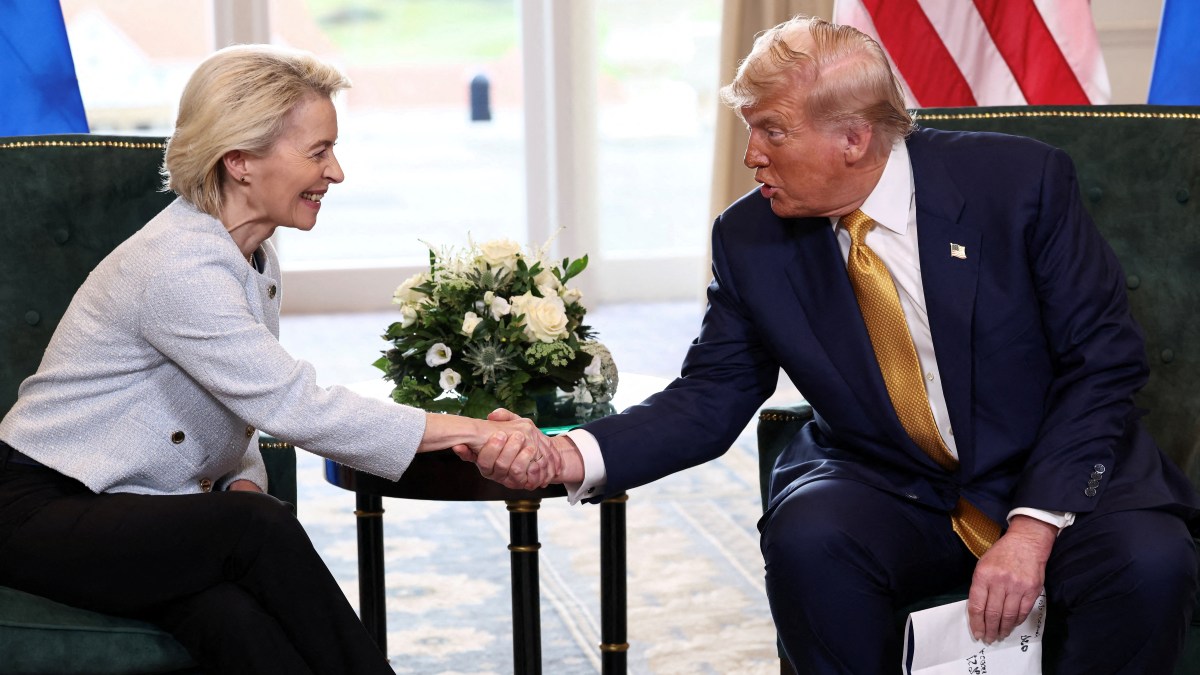Major stock markets in Europe are expected to rise this morning after the US and the European Union agreed a trade deal.
Future contracts point to the FTSE 100, Germany’s DAX and France’s CAC 40 opening up 0.5 per cent, 1 per cent and 0.4 per cent respectively.
President Trump said the “powerful” deal had created “a partnership” as he touted “the biggest deal ever struck by anybody”. Ursula von der Leyen, the president of the European Commission, hailed the deal, announced in the ballroom of the president’s Turnberry golf resort in Ayrshire, as a breakthrough. More here.
Under the agreement:
• More EU exports will have a flat 15 per cent attached, covering sectors such as cars, semiconductors, and pharmaceuticals. However, tariffs on pharmaceuticals and semiconductors could change in weeks.
• Zero-for-zero tariffs agreed on a range of strategic goods, including aircraft parts, chemicals, generics, semiconductors, certain agricultural goods, and critical raw materials.
• Steel and aluminium tariffs will shift to a quota system, addressing global overcapacity jointly.
• The EU agreed to purchase $750 billion in US oil and liquefied natural gas (LNG), further reducing its reliance on Russian energy
• The EU will invest $600 billion in the US on top of existing expenditures and purchase “vast amounts” of military equipment, Trump said.
• Von der Leyen said no decisions have been made on European wine and spirits, but the matter would be sorted out soon.
Holger Schmieding, Berenberg Bank, London: “The crippling uncertainty is largely over, the deal is bearable for the EU. Modestly good news for equity markets, which probably priced in most of it beforehand. The deal seems to be largely in line with the reports about a potential deal last Thursday. Trump can claim that the asymmetric deal is a ‘win’ for him. But of course, the outcome is still bad relative to the situation that prevailed before Trump started his trade wars.”
Eric Winograd, AllianceBernstein, New York: “This is very similar to the deal we reached with Japan. We will need to see how long the sides stick to the deal. From a market perspective, it is reassuring in the sense that having a deal is better than not having a deal.”
Kristina Clifton, Commonwealth Bank of Australia, Sydney: “It’s a lot better than a worst-case scenario, but it’s still a headwind for the global economy. We still have this deadline of the 1st of August, so there are still plenty of countries that haven’t reached a trade deal with the U.S. yet … we still don’t have a trade deal between the US and Canada.”
